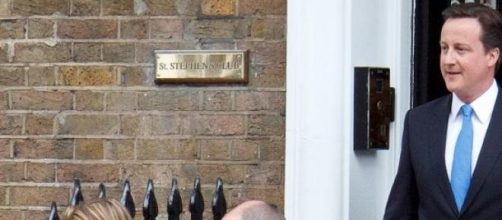In my previous post "What does 2015 have in store for UK politics?", I outlined the shape of the main parties in UK politics, and speculated how they might perform at the election in May. However, in this piece, I am going to add some detail to my previous article. The previous article discussed what the result of the General Election might be; but it did not really speculate on the outcome - what Government might be formed after the election.
A Government can take one of three forms:
1. A Majority (single-party) Government
2. A Minority Government
3.
A Coalition Government
Let's take each in turn: A Majority Government:
a) A Conservative Majority Government - this would require The Conservatives having a net gain in MPs. This seems very unlikely. The Conservatives could remain the largest single Party (although, this is highly uncertain). But they are unlikely to be able to Govern alone, so as the largest Party, they could either form a Minority Government, or a Coalition.
b) A Labour Majority Government - in theory this is highly likely; but it is probably unlikely to happen. As the Party of Opposition, Labour should be looking to have a net increase of MPs, and given that The Conservatives do not have a Majority, Labour should be able to overturn The Conservatives.
In 1992, The Conservatives managed to produce a (small/fragile) Majority Government; but Labour overturned this in 1997 with the largest ever single-Party Government. However, Labour can't replicate this in 2015. In Scotland, they are losing the fight to the SNP; and in England and Wales, they are failing to make the break throughs that they need to be making if they are to come out of 2015 as a Majority Government.
2. A Minority Government occurs when no single-party secures an absolute Majority; and cannot form a Coalition. There are two possibilities here:
a) A Conservative Minority Government - this would happen if The Conservatives remain the largest single Party, but can't form a Coalition.
This was a distinct possibility in 2010. But The Conservatives and Lib Dems formed a Coalition. A Conservative Minority Government seems unlikely, because if they were the single largest Party, but without a Majority, they would presumably seek to continue the Coalition with the Lib Dems, or in the event of a UKIP success, form a Coalition with UKIP. A Conservative Minority Government could, however, occur if The Conservatives and Lib Dems cannot continue the Coalition, because the Lib Dems do badly, and the combined number of the 2 parties doesn't provide a Majority. Ditto, if The Conservatives and UKIP cannot combine their number of MPs to create a Coalition, The Conservatives might end up running a Minority administration.
b) A Labour Minority Government - this would happen if Labour become the largest single Party, but can't form a coalition. This is a definite possibility, as Labour would be reluctant to form a Coalition Government with the Lib Dems (esp. with Nick Clegg as Leader of the Lib Dems). It is hard to see how Labour could form a Coalition, as a Coalition with the SNP would be difficult, and a Coalition with UKIP virtually inconceivable.
3. A Coalition Government. This could take one of two forms: A Conservative-led Coalition or Labour-led Coalition.
I will discuss these possibilities in the third part of this trilogy of posts. And try and work through the options.

